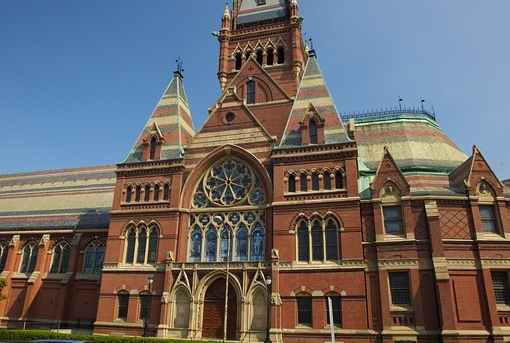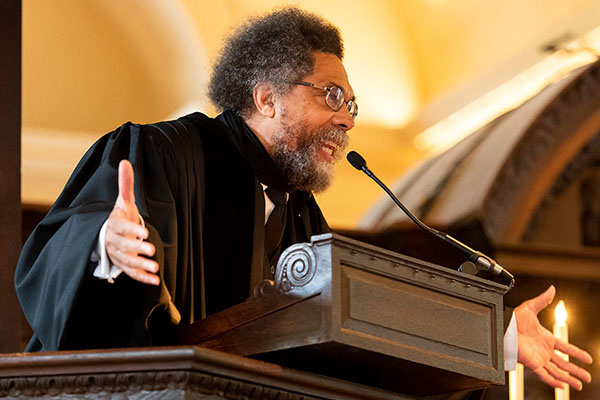Harvard University, prestigious and world-renowned, is known for support of professors with sometimes less-than-mainstream points of view. Read on to learn more about controversial Harvard professors over the years.
Harvard University is a beacon of learning and academia, recognized globally as one of the foremost academic institutions. Founded in 1636 in Cambridge Massachusetts, the school is likely best known for its rich history, academic excellence, groundbreaking research, and selective admissions.
Controversial Teachers, Educated Students
Harvard’s history of intellectual rigor and academic excellence has been marked by controversies surrounding some of its professors. From the contentious debates sparked by outspoken scholars challenging societal norms to clashes over academic freedom and political ideologies, Harvard’s legacy includes a mix of academic dissent and discourse.
Whether it’s the provocative research of psychologist B.F. Skinner, the politically charged statements of economist Martin Feldstein, or the allegations of misconduct against prominent figures like Jorge Domínguez, the University’s history of controversial professors reflects the complex intersection of scholarship, ethics, and societal values within academia. Let’s explore some of the figures that make Harvard what it is today.
Mark Ramseyer: Law, Economics and Japanese History
Professor Mark Ramseyer is a distinguished scholar in the fields of law and economics, currently serving as the Mitsubishi Professor of Japanese Legal Studies at Harvard Law School. Renowned for his expertise in Japanese law and corporate governance, Ramseyer’s research includes various aspects of law and economics, with a particular focus on contract theory, corporate law, and the legal institutions of Japan.
Ramseyer’s work often challenges conventional wisdom and prompts critical debate within legal and academic communities. His analysis and sometimes provocative arguments have earned him both praise and criticism, establishing him as a prominent figure in the intersection of law, economics, and Asian studies.
With a rigorous academic background including degrees from the University of Chicago and Harvard Law School, Ramseyer’s scholarship has made significant contributions to the understanding of legal systems and their impact on economic behavior. He is widely published in leading academic journals and has authored several influential books exploring topics ranging from property rights to the historical development of legal institutions in Japan.
Through his teaching, writing, and research, Professor Mark Ramseyer continues to shape scholarly discourse and advance understandings of law, economics and Japanese History on a global scale.
Harvey Mansfield and the Criticism of PC Culture
Harvey Mansfield, retired professor of government at Harvard University, has been a figure of controversy due to his conservative views and critiques of modern liberalism and political correctness. He perceives a decline of traditional values in academia and has been criticized for his views on gender and for allegedly fostering a hostile environment for women in his classes.
Mansfield is known for his active engagement in public debates on a wide range of political and social issues. While this has earned praise from some quarters for his willingness to challenge prevailing norms, it has also attracted criticism for his controversial viewpoints and rhetoric.
Overall, Harvey Mansfield’s controversial reputation stems from his staunch conservatism and his willingness to challenge liberal norms and values both within academia and in the public sphere.
Cornel West and Identity Politics
A prominent African American studies scholar and public intellectual, Cornel West has been both celebrated and criticized for his outspoken critiques of American society, politics, and culture.
Professor West has been involved in controversies related to his criticism of President Barack Obama, his views on race and identity politics, and his departure from Harvard in 2002 amid disputes with the university administration.
Cornel West’s departure from Harvard University in 2022 sent shockwaves through academia and beyond. Amid reports of tensions with the university administration and concerns over academic freedom, West announced his decision to leave his position as a Professor of the Practice of Public Philosophy at the Harvard Divinity School.
His departure sparked widespread discussions about the state of academic freedom, diversity, and inclusion within institutions of higher education. Many lamented the loss of West’s distinctive voice and intellectual contributions to the Harvard community, while others saw it as a reflection of deeper issues within academia regarding the treatment of scholars who challenge the status quo.
West’s departure from Harvard marked the end of an era but also served as a catalyst for ongoing conversations about the importance of fostering environments that support diverse perspectives and uphold principles of academic freedom and social justice.

Introvert. Proud beer specialist. Coffee geek. Typical thinker. Pop culture trailblazer. Music practitioner. Explorer.






